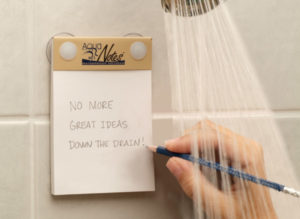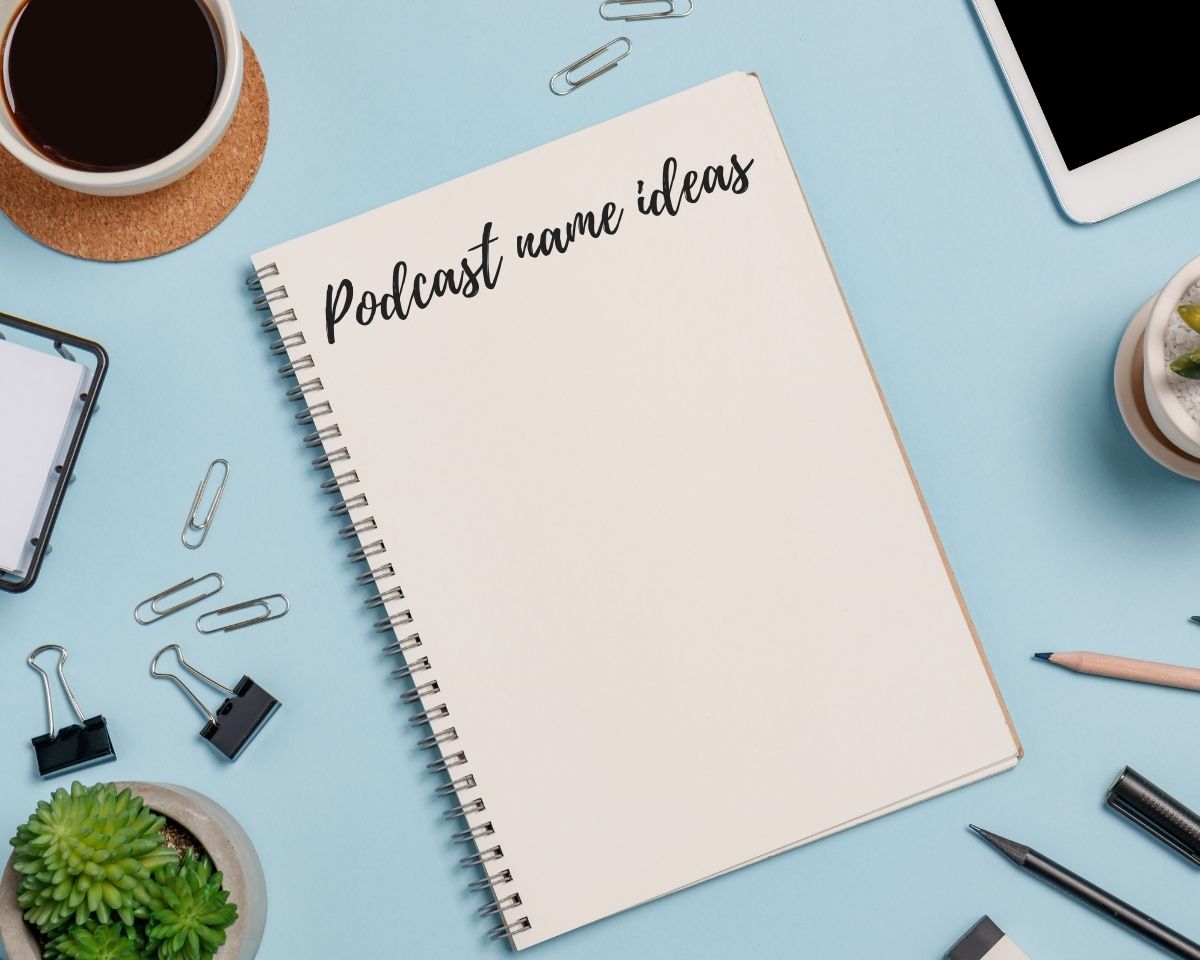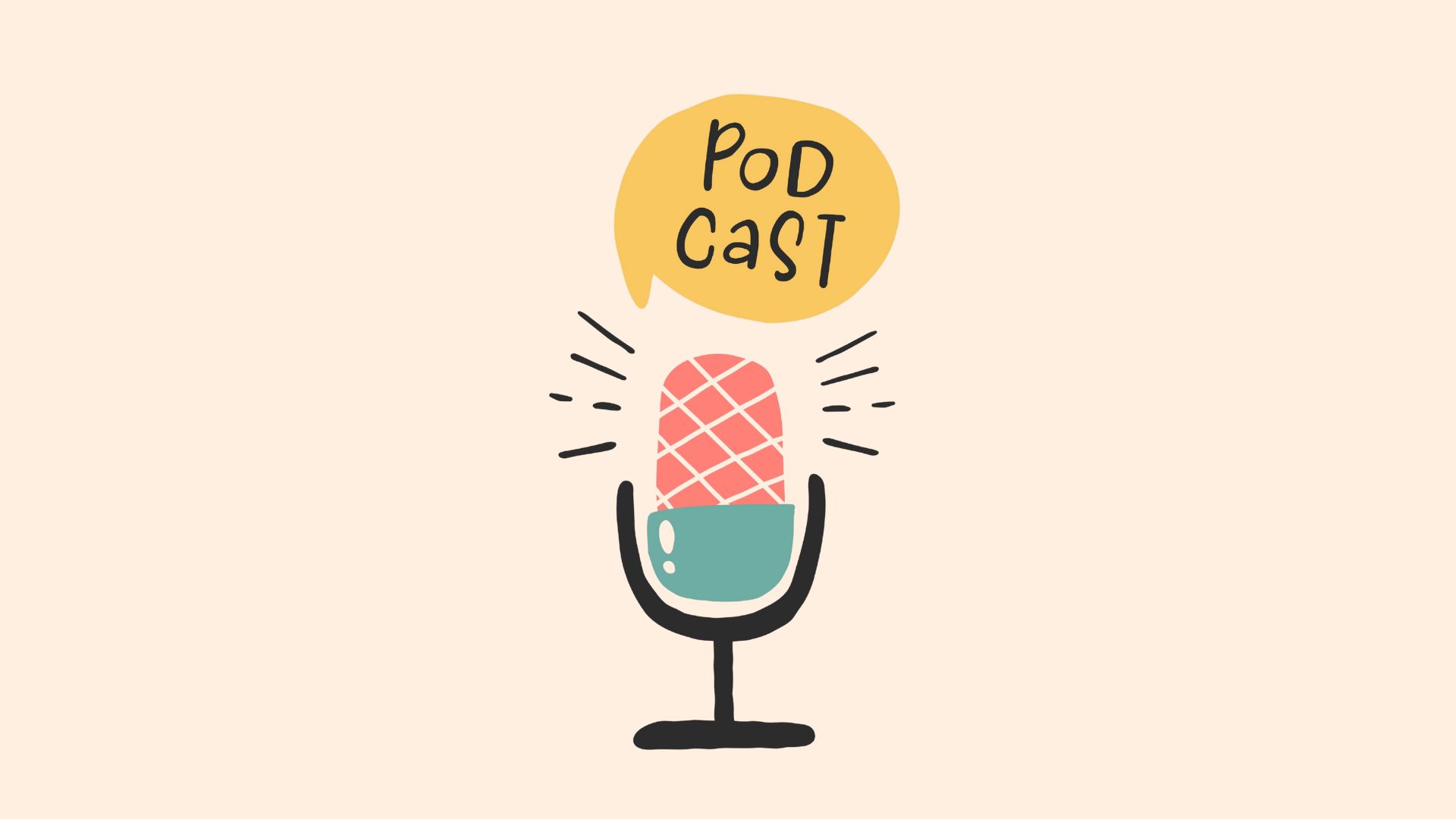How to make coming up with ideas easier…
Keep track of ALL your random ideas
One of the best habits I picked up from a career in radio was the ritual of carrying a notebook EVERYWHERE.
When you’ve got to fill a two or three-hour show with content every day, coming up with ideas is a 24-hour job. Every conversation you have with friends, every television show you watch, every post you read on Facebook is a potential idea for the next day.
And since opening a content meeting with “I couldn’t find anything” isn’t an option, it’s important to have a system to capture every random idea that pops into your head.
If you’ve got a regular blog or podcast this is something you should be doing already because you’ll know how tough it is to come up with ideas constantly.
But if these things are still a pipedream, recording ideas for a future project might seem silly. But trust me, it’s not.
If you’re a creative person, you have no idea when inspiration will strike. Once you’ve planted the seed that you want to start something, even if it’s a long way off, your subconscious will throw ideas for content at you whether you’re ready or not.
If you start recording them now, by the time you sit down to plan you’ll have weeks or months of content ideas to choose from.
Writing down your ideas helps to refine them
One of the perils of being a creative person is you have A LOT of ideas. Unfortunately, not all of them are brilliant.
Starting the process of writing your ideas down for a future project can help you work out whether the project has legs or whether it should be left in the “WTF was I thinking?” pile.
To build an audience for your blog or podcast you have to be consistent. That means you need plenty of ideas.
If you’re having trouble coming up with them in the months leading up to launch it’s probably a good indication it’ll be even more difficult once it’s live.
This can help you adjust your idea or realise it’s not the right one.
If, however, you find yourself with a bucket load of ideas having a full notebook will help you get ahead of your schedule once you get started. And believe me, that’s a GREAT thing.
Try and work as far ahead of time as possible
When you’re podcasting or blogging weekly, it’s easy to assume a week is enough time to come up with ideas for your next episode or post.
The truth is, it is….if you have absolutely nothing else to do with your life other than come up with that one idea.
Unfortunately, that’s not the reality for most of us.
Particularly if this project is a side hustle, you’ll have the pressures of a full-time job to contend with and it only takes a couple of nights of putting it off before it’s the night before your deadline and you’re staring at a blank piece of paper tearing your hair out.
Often when I mention this to people they say “but I work better under pressure!”
I can appreciate that because I do too. The problem is time pressure only helps when you’re at the stage of creating the content. If you’re still in idea generation phase, pressure is the last thing you need because anxiety is the enemy of blue-sky thinking.
If you’re trying to come up with ideas against the clock you’ll end up throwing something half-arsed together just to get it out the door. And that’s never a good idea if you’re trying to build an audience.
Keep notepads everywhere
How many times have you heard someone say they came up with their million-dollar idea on the toilet or in the shower?
These are places we tend to give our brains a break and once they’re not being bombarded with us demanding they come up with something they usually have the freedom to do it.
What you have to do in moments like these, is make sure you have a way to capture your genius.
For me, the most important place to have a notepad is beside my bed. I’ll often think of something as I’m reading, or wake up in the middle of the night.
I know from experience not writing these ideas down leads to two things – not being able to sleep because you’re worried you’ll forget the idea and then waking up with no clue what the idea was.
Keeping a notepad by your bed means you can get some shut-eye, secure in the knowledge your idea is safely written down. You can also assess it with fresh eyes in the morning and work out whether it was over-tired delirium or genuine inspiration.

Capturing ideas is important but not as important as protecting your neighbour’s retinas…and mental health.
Of course, if you’re someone who has fully embraced the digital age you can use the note app on your phone to record everything.
I, on the other hand, am one of those antiquated individuals who still likes the feeling of pen on paper. We’re a dying breed.
Use your phone’s voice recorder
Driving is another place where genius strikes but swerving off the road is no way to ensure that genius is recognised.
Recording a quick voice memo on your phone is a great way to capture your mobile inspiration.
Consolidate everything
Ideas are only useful if you know where they are and if you look at them again after you’ve written them down.
These days I regularly collect my notebooks and audio files and put everything into Evernote.
I file things according to topic or project and with the app, I have access to all my notes whether I’m on my phone or at my computer.
This admin-y process might sound underwhelming to the creative purists, but trust me, when it comes time to sit down and write your Pulitzer Prize winner you’ll be grateful you can find that killer opening line in 5 minutes rather than 5 weeks.
So, if your subconscious is doing you a favour and throwing up ideas whether for now or the distant future, do yourself a favour and make sure you’re ready to catch them.
Want to start your own podcast but need a little help? Download my “How To Start A Podcast” guide or sign up for my online podcasting course, PodSchool.












